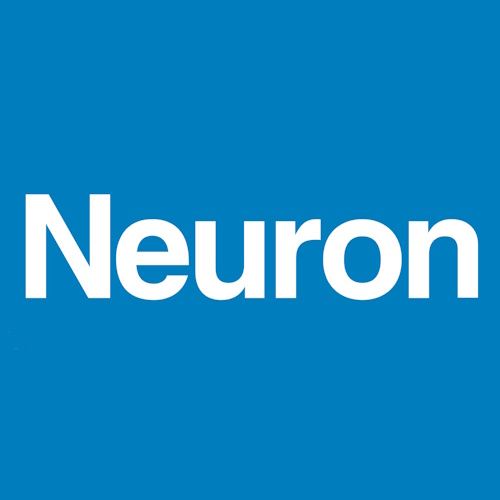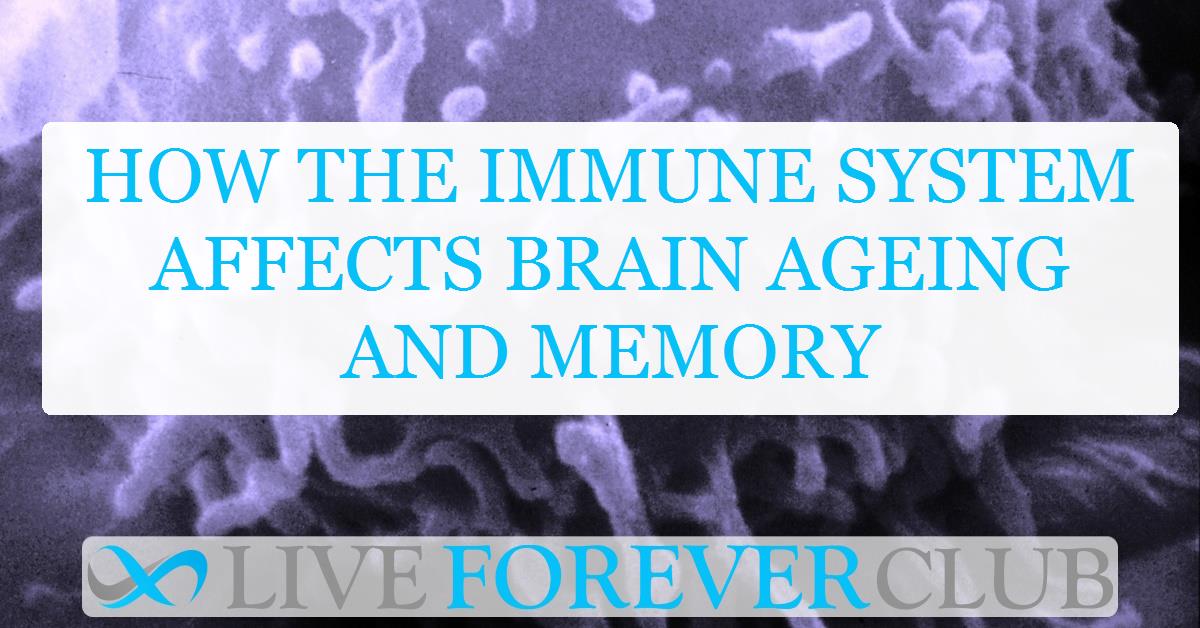Ageing affects every system in the body, but few realise how deeply it impacts both the brain and the immune system. Traditionally, scientists believed that cognitive decline was solely a result of neuron loss and dysfunction. However, emerging research reveals that the immune system plays a crucial role in brain health.
As the immune system weakens with age, it disrupts communication pathways that support cognitive function, contributing to memory loss, reduced learning capacity, and neurodegenerative diseases. Understanding this relationship opens new doors to potential interventions that could slow or even reverse cognitive decline.
Interplay Between the Immune System and Brain Ageing
For decades, researchers assumed that the brain and immune system functioned independently. The brain was considered an immune-privileged organ, meaning that immune cells had minimal influence on its health. This belief was reinforced by the presence of the blood-brain barrier (BBB), which was thought to prevent immune interactions with neural tissue. However, modern discoveries show that immune cells actively support brain function by regulating neurogenesis, synaptic plasticity, and inflammation.
The relationship between the immune system and the brain becomes particularly significant with ageing. As people grow older, their immune systems undergo substantial changes, including increased inflammation, reduced efficiency in clearing waste, and a decline in the production of new immune cells. These alterations negatively impact the brain, accelerating cognitive decline and increasing susceptibility to neurodegenerative diseases like Alzheimer’s and Parkinson’s. Scientists now recognise that maintaining immune fitness is essential for preserving cognitive abilities and overall brain health.
Inflammaging: The Silent Driver of Cognitive Decline
One of the most detrimental effects of immune ageing is a condition known as inflammaging, a chronic low-grade inflammatory state that develops with age. Unlike acute inflammation, which is a temporary response to injury or infection, inflammaging persists over time and gradually damages tissues, including the brain. This persistent inflammation has been linked to numerous age-related diseases, such as cardiovascular disorders, cancer, and neurodegenerative conditions.
Studies have identified key inflammatory markers associated with cognitive decline. Elevated levels of pro-inflammatory cytokines like IL-6 and TNF-alpha are frequently observed in older individuals and correlate with an increased risk of dementia. On the other hand, certain immune molecules, such as IL-12 and IFN-gamma, appear to have protective effects by slowing cognitive decline. This suggests that targeting inflammation could be a promising strategy for preserving brain function.
Experimental research using heterochronic parabiosis—where the circulatory systems of young and old animals are connected—demonstrates the profound impact of systemic inflammation on the brain. Older animals exposed to young blood exhibit improved cognitive function, enhanced neurogenesis, and reduced inflammation. Conversely, young animals exposed to aged blood experience accelerated cognitive decline. Scientists have identified specific proteins in young blood, such as TIMP2 and CSF2, that contribute to brain rejuvenation. These findings suggest that manipulating the levels of key immune factors could be a potential therapy for age-related cognitive decline.
Cellular Senescence and Its Impact on Brain Health
Another major contributor to cognitive decline is cellular senescence, a process in which cells lose their ability to divide and function properly. Senescent cells accumulate with age and release harmful molecules known as the senescence-associated secretory phenotype (SASP). These factors promote chronic inflammation and disrupt normal tissue function, including in the brain.
Senescent microglia and astrocytes, the primary immune cells of the central nervous system, are particularly problematic. As they accumulate, they become less efficient at clearing waste and regulating inflammation. This leads to increased neuroinflammation, impaired synaptic plasticity, and reduced neurogenesis, all of which contribute to cognitive decline.
Recent research suggests that removing senescent cells using senolytic drugs could improve brain health. In animal models, treatment with senolytics has been shown to reduce neuroinflammation, enhance cognitive function, and even slow the progression of Alzheimer’s disease. Clinical trials are currently underway to evaluate whether these findings translate to humans. If successful, senolytic therapies could become a groundbreaking approach to combating cognitive ageing.
Immunosenescence and the Breakdown of Brain Protection Mechanisms
The immune system itself undergoes ageing, a phenomenon known as immunosenescence. This process reduces the production of new immune cells and weakens the body’s ability to fight infections, clear damaged cells, and regulate inflammation. The decline in immune function also affects the brain’s protective barriers, such as the blood-brain barrier (BBB) and the choroid plexus, allowing harmful molecules and immune cells to infiltrate neural tissue.
As the BBB deteriorates with age, it becomes more permeable, allowing inflammatory cytokines and toxic proteins to enter the brain. This contributes to neurodegeneration and cognitive impairment. Researchers have found that restoring BBB integrity can improve cognitive function in ageing animals. Potential strategies include targeting vascular inflammation and using young blood factors to reinforce barrier function.
The choroid plexus, which produces cerebrospinal fluid and serves as a gateway for immune communication, also becomes dysregulated with age. Inflammatory signals from the ageing immune system alter the function of this structure, leading to impaired waste clearance and increased neuroinflammation. Restoring the balance of immune signaling at the choroid plexus could help maintain brain homeostasis and slow cognitive decline.
Lifestyle Interventions for Immune and Brain Health
While medical interventions for immune rejuvenation are still in development, lifestyle choices play a crucial role in maintaining both immune and brain health. Regular physical exercise is one of the most effective ways to support cognitive function and immune fitness. Exercise has been shown to enhance neurogenesis, improve synaptic plasticity, and reduce inflammation. It also increases the levels of beneficial proteins in the bloodstream that promote brain health.
Caloric restriction is another powerful intervention. Research indicates that reducing calorie intake can decrease inflammation, enhance metabolic function, and improve cognitive performance. Some studies suggest that intermittent fasting may also have neuroprotective effects by promoting cellular repair and reducing oxidative stress. Clinical trials are currently exploring whether these dietary interventions can extend cognitive longevity in humans.
Harnessing the Immune System for Brain Rejuvenation
Beyond lifestyle changes, scientists are exploring advanced therapies to rejuvenate the immune system and, in turn, protect brain function. One promising approach is immune checkpoint inhibition, which involves blocking inhibitory immune signals to enhance immune activity. Some studies suggest that inhibiting the PD-1/PD-L1 pathway can improve cognitive function in ageing animals. However, careful regulation is necessary to prevent excessive immune activation, which could lead to autoimmune complications.
Another strategy involves boosting brain-specific immune cells that support cognitive function. Researchers are investigating whether vaccination with brain-derived antigens could stimulate protective immune responses. While this approach is still in its early stages, it offers a potential pathway for preventing cognitive decline.
Future of Anti-Ageing Immune Therapy
As our understanding of the immune-brain connection deepens, the development of targeted therapies to slow or reverse cognitive decline becomes increasingly feasible. Approaches such as immune system rejuvenation, senolytic therapies, and anti-inflammatory treatments hold great promise for extending cognitive health.
Combining these medical advances with healthy lifestyle practices may offer the most effective strategy for preserving brain function throughout ageing. By focusing on immune fitness, researchers are not only redefining ageing but also opening the door to a future where cognitive decline is no longer an inevitable part of growing older.
The study is published in the journal Neuron. It was carried out by Leyre Basurco and team from Weizmann Institute of Science.







